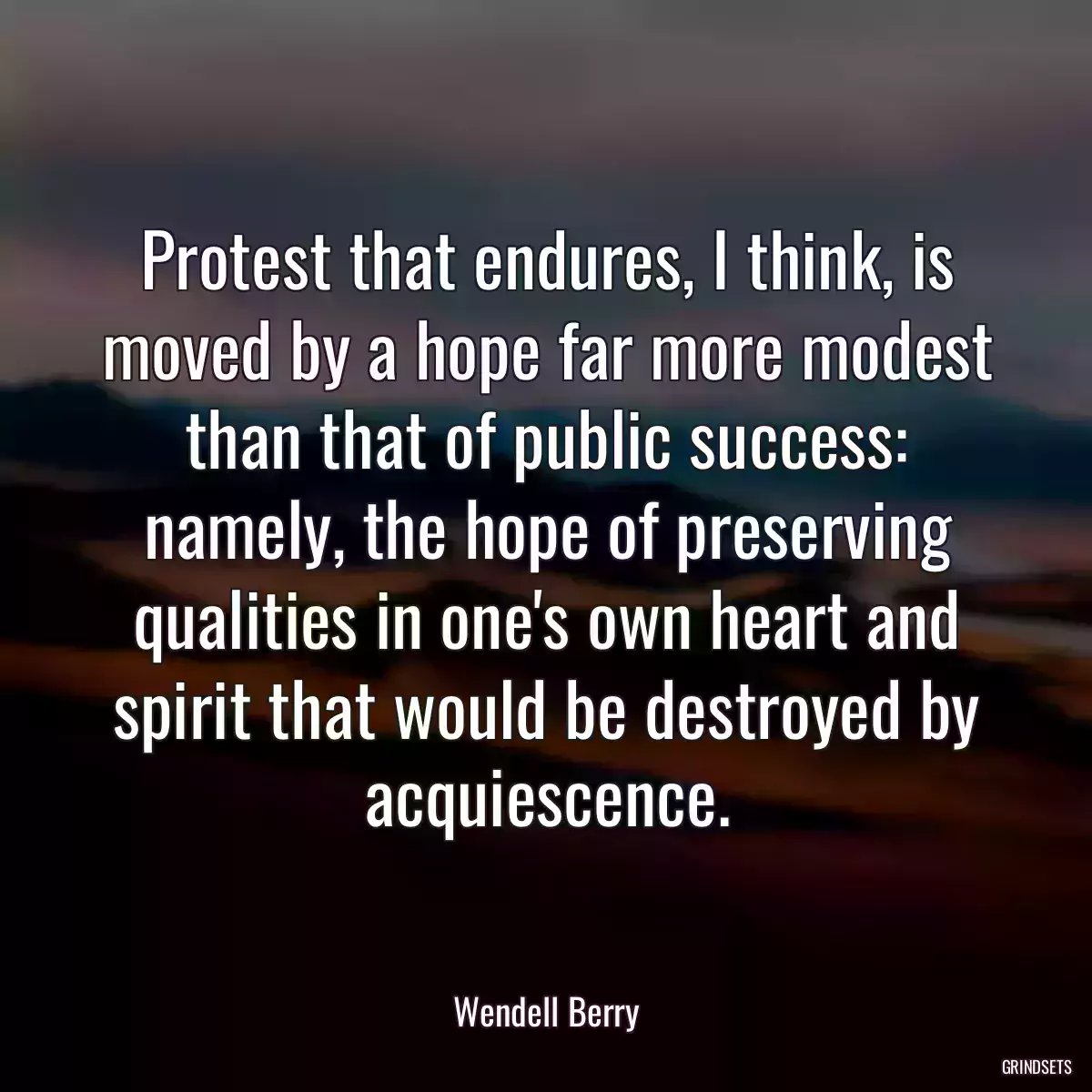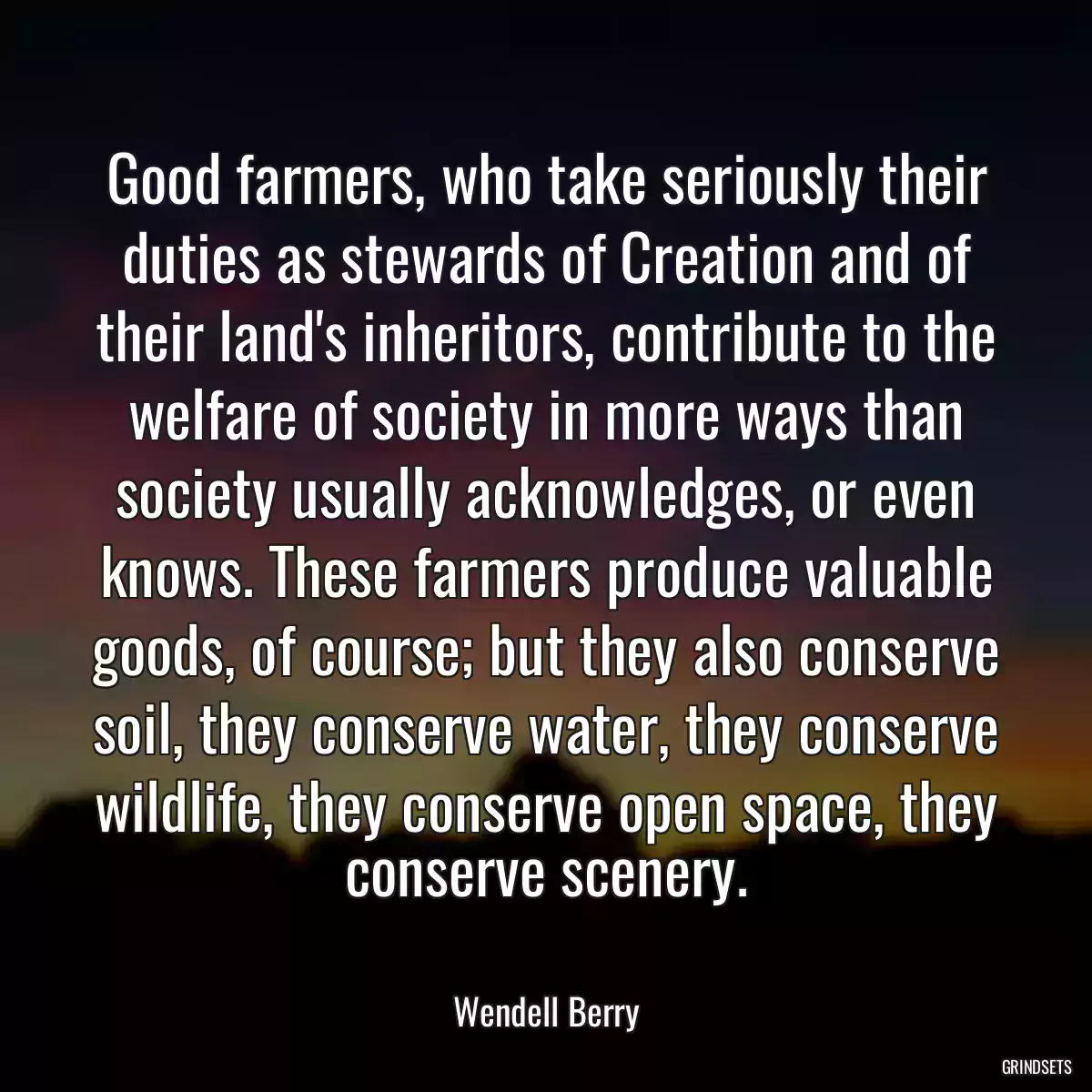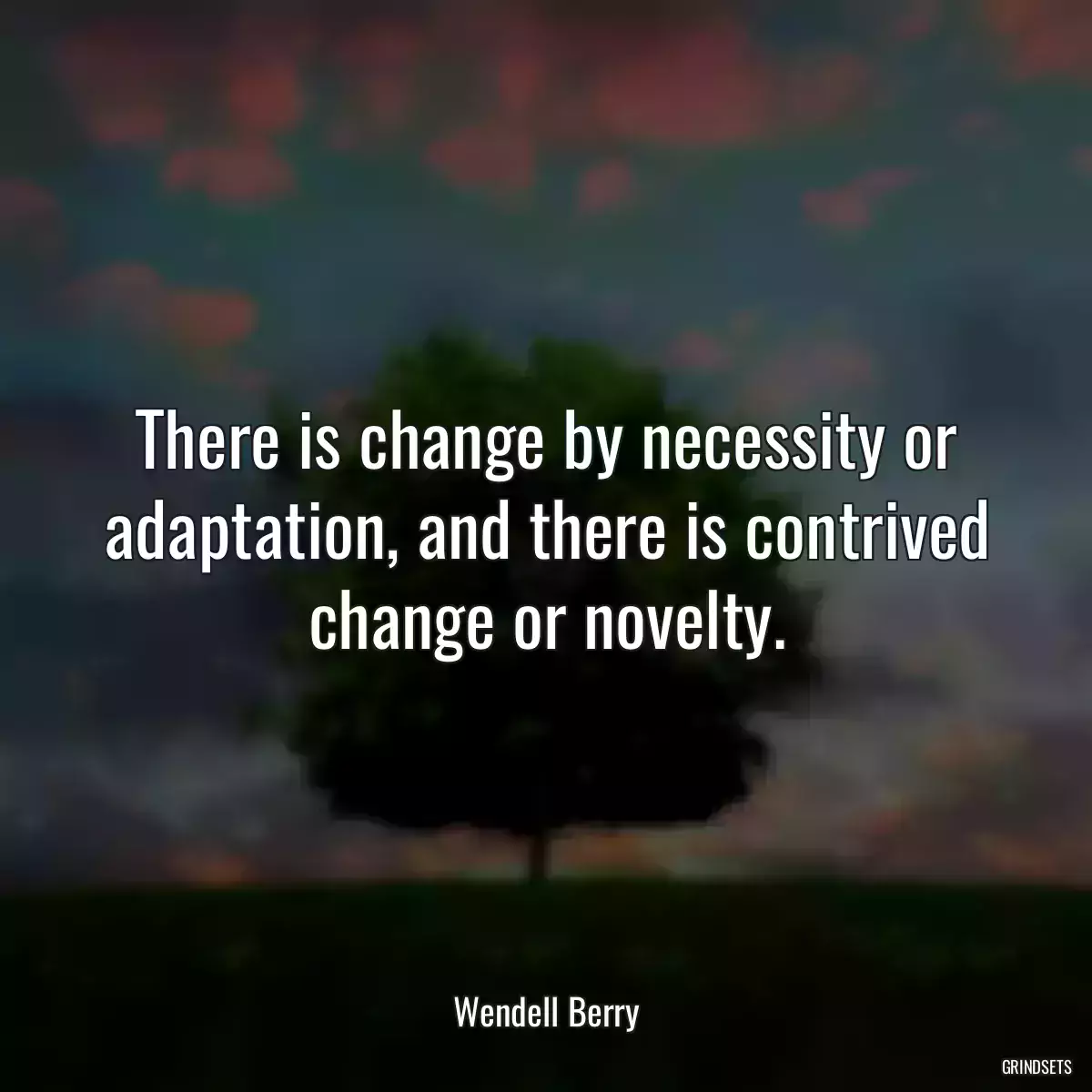
Quotes Wendell Berry - page 4
Find dozens of Wendell Berry with images to copy and share.

The religion and the environmentalism of the highly industrialized countries are at bottom a sham, because they make it their business to fight against something that they do not really wish to destroy. We all live by robbing nature, but our standard of living demands that the robbery shall continue. We must achieve the character and acquire the skills to live much poorer than we do.
The difference between a path and a road is not only the obvious one. A path is little more than a habit that comes with knowledge of a place. It is a sort of ritual of familiarity. As a form, it is a form of contact with a known landscape. It is not destructive. It is the perfect adaptation, through experience and familiarity, of movement to place; it obeys the natural contours; such obstacles as it meets it goes around.
We are going to have to gather up the fragments of knowledge and responsibilities that have been turned over to governments, corporations, and specialists, and put those fragments back together again in our own minds and in our families and household and neighborhoods.
You may also like
We clasp the hands of those who go before us, and the hands of those who come after us; we enter the little circle of each other's arms, and the larger circle of lovers whose hands are joined in a dance, and the larger circle of all creatures, passing in and out of life, who move also in a dance, to a music so subtle and vast that no ear hears it except in fragments.
Creation is thus God's presence in creatures. The Greek Orthodox theologian Philip Sherrard has written that "Creation is nothing less than the manifestation of God's hidden Being." This means that we and all other creatures live by a sanctity that is inexpressibly intimate, for to every creature, the gift of life is a portion of the breath and spirit of God. (pg. 308, Christianity and the Survival of Creation)
The two ideas, justice and vocation, are inseparable.... It is by way of the principle and practice of vocation that sanctity and reverence enter into the human economy. It was thus possible for traditional cultures to conceive that "to work is to pray." (pg. 258, The Idea of a Local Economy)
To be sane in a mad time is bad for the brain, worse for the heart.
Let us have the candor to acknowledge that what we call "the economy" or "the free market" is less and less distinguishable from warfare.

Good farmers, who take seriously their duties as stewards of Creation and of their land's inheritors, contribute to the welfare of society in more ways than society usually acknowledges, or even knows. These farmers produce valuable goods, of course; but they also conserve soil, they conserve water, they conserve wildlife, they conserve open space, they conserve scenery.
Where is our comfort but in the free, uninvolved, finally mysterious beauty and grace of this world that we did not make, that has no price? Where is our sanity but there? Where is our pleasure but in working and resting kindly in the presence of this world? (pg. 215, Economy and Pleasure)
There is no sense and no sanity in objecting to the desecration of the flag while tolerating and justifying and encouraging as a daily business the desecration of the country for which it stands.
To have good farming or good land use of any kind, you have got to have limits. Capitalism doesn't acknowledge limits.
And so there would always be more to remember that could no longer be seen...our history is always returning to a little patch of weeds and saplings with an old chimney sticking up by itself...and here I look ahead to the resting of my case: I love the house that belonged to the chimney, holding it bright in memory, and love the saplings and the weeds.
The acquisition of knowledge always involves the revelation of ignorance-almost is the revelation of ignorance.
If, on the other hand, conservationists are willing to insist on having the best food, produced in the best way, as close to their homes as possible, and if they are willing to learn to judge the quality of food and food production, then they are going to give economic support to an entirely different kind of land use in an entirely different landscape. This landscape will have a higher ratio of caretakers to acres, of care to use. It will be at once more domestic and more wild than the industrial landscape.
Soil is not usually lost in slabs or heaps of magnificent tonnage. It is lost a little at a time over millions of acres by the careless acts of millions of people. It cannot be saved by heroic feats of gigantic technology, but only by millions of small acts and restraints, conditioned by small fidelities, skills, and desires. Soil loss is ultimately a cultural problem; it will be corrected only by cultural solutions.
Under the rule of the "free market" ideology, we have gone through two decades of an energy crisis without an effective energy policy. Because of an easy and thoughtless reliance on imported oil, we have no adequate policy for the conservation of gasoline and other petroleum products. We have no adequate policy for the development or use of other, less harmful forms of energy. We have no adequate system of public transportation.
You may also like

The aim of industrialization has always been to replace people with machines or other technology, to make the cost of production as low as possible, to sell the product as high as possible, and to move the wealth into fewer and fewer hands.